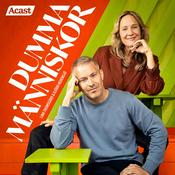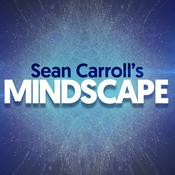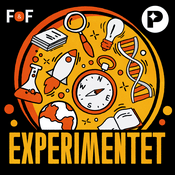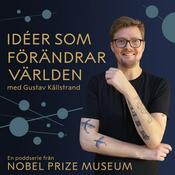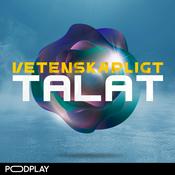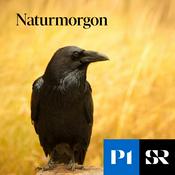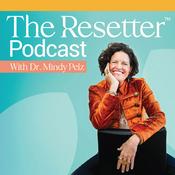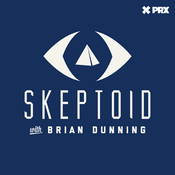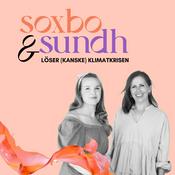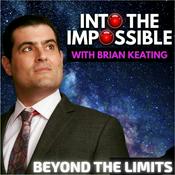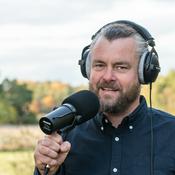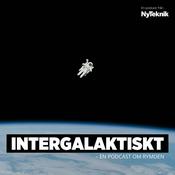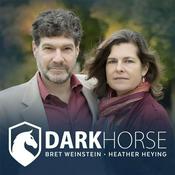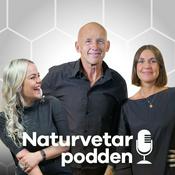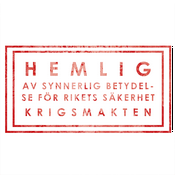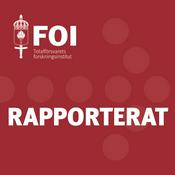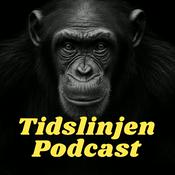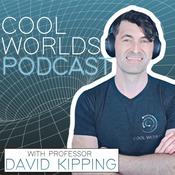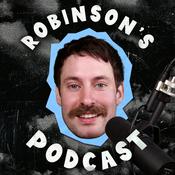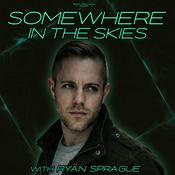22 avsnitt
- How does the act of displaying items allow us to reassess our connection to the past and guide us towards new futures? In this episode, we will explore the concept of display, which includes the showcasing of images, objects, ideas, and bodies in museums and beyond. Our guest is Dr. Friedrich von Bose, Director of the Museum der Kulturen Basel, who merges imaginative approaches with scholarly research and curatorial practice. His academic and curatorial work has primarily focused on the political implications of display concerning colonialism, racism, and the future of anthropology museums. As a cultural anthropologist and former curator at the Humboldt Forum, von Bose has also served as a Senior Researcher and Lecturer at the Institute of Social Anthropology and Empirical Cultural Studies at the University of Zurich, concentrating on the History and Theory of Museum Ethics since 2023. Before this, he oversaw research and exhibitions at the three ethnological museums of the State Ethnographic Collections of Saxony (State Art Collections Dresden): the Grassi Museum of Ethnology in Leipzig, the Museum of Ethnology Dresden, and the Ethnology Museum Herrnhut, where he was responsible for the long-term strategic development of research and exhibition programs.
von Bose’s publications include:
Researching Colonial Provenances. Final Report of the Project “Provenance of Colonial-Era Collections from Togo in the Museum für Völkerkunde Dresden and the GRASSI Museum für Völkerkunde zu Leipzig”, (2024)
“Concerning curatorial practice in ethnological museums. An epistemology of postcolonial debate” in: Conal McCarthy, Philipp Schorch (Eds.): Curatopia. Museums and the future of curatorship (2019)
Das Humboldt-Forum. Eine Ethnografie seiner Planung (2016)
“The making of Berlin‘s Humboldt-Forum. Negotiating history and the cultural politics of place” (2013)
Host: George Paul Meiu, Professor of Anthropology and Chair of the Institute of Social Anthropology at the University of Basel.
Production: Zainabu Jallo (Institute of Social Anthropology) in
collaboration with the New Media Center at the University of Basel. - In this episode On Extractivism, the conversation centres on how the unpredictability of extractive economies opens and forecloses various futures, a global market premised on the extraction of natural resources and raw materials. Our guest is Mark Goodale, professor of cultural and social anthropology at the University of Lausanne, Switzerland whose work explores lithium extraction, new global green economies, and the long histories of extractivism in South America. His research encompasses law, human rights, politics, ideology, and long-term ethnographic studies in Bolivia, where his projects have examined government justice and recognition under Evo Morales' human rights activism. Goodale is the author of numerous books, such as Dilemmas of Modernity. Bolivian Encounters with Law and Liberalism (2008) Surrendering to Utopia. An Anthropology of Human Rights (2009), Anthropology and Law. A Critical Introduction (2017), A Revolution in Fragments. Traversing Scales of Justice, Ideology and Practice in Bolivia (2019) and Reinventing Human Rights (2022)
This episode focuses on Extracting the Future. Lithium in an Era of Energy Transition (2025), Goodale`s most recent book.
Host: George Paul Meiu, Professor of Anthropology and Chair of the Institute of Social Anthropology at the University of Basel.
Production: Zainabu Jallo (Institute of Social Anthropology) in
collaboration with the New Media Center at the University of Basel. - How can plastic offer us an important window into today's epochal conundrum? This episode, On Plastics, looks at a historically salient material, ever so complexly entangled in our bodies and everyday life, with our guest Brenda Chalfin, whose ethnographic work explores plastic along with other material flows in the contemporary social life of urban Ghana.
Chalfin is a professor of anthropology at the University of Florida, where she has also held the position of director of the Centre for African Studies. Her research primarily investigates issues related to state formation, urban environments, material infrastructures, and political economies across West Africa. She has paid particular attention to the public life and governance of material flows from plastics to human waste to water, offshore oil and indigenous commodities.
Chalfin is the author of numerous articles and the author of Shea Butter Republic (2004), Neoliberal Frontiers. An Ethnography of Sovereignty in West Africa (2010) and Waste Works. Vital Politics in Urban Ghana (2023).
Host: George Paul Meiu, Professor of Anthropology and Chair of the Institute of Social Anthropology at the University of Basel.
Production: Zainabu Jallo (Institute of Social Anthropology) in
collaboration with the New Media Center at the University of Basel. - What does the desire to overcome death and preserve oneself for the far future tell us about the world in which we live? Immortality, ways to overcome death in the present, as imagined through new secular technologies, is what we discuss in this episode with our guest, Abu Farman, Associate Professor of Anthropology at the New School for Social Research in New York. His scholarly work explores how recent investments in immortality have generated new understandings of the human. A large portion of his research and writings, focuses on secularization in relation to post-humanism, technology and aesthetics, and also more widely, questions of religion and secularism, science, dying, and indigenous autonomy. Among Farman`s publications is the book Clerks of the Passage (2012), an extended essay on movement migration. He has also authored numerous essays on topics as diverse as transhumanism, health, informatics, selves, cosmos and cosmologies, death and the infinite.
This episode is centered around his book On Not Dying. Secular Immortality in the Age of Technoscience (2020) is a fascinating study about secular technological investments in overcoming death in the American context.
Host: George Paul Meiu, Professor of Anthropology and Chair of the Institute of Social Anthropology at the University of Basel.
Production: Zainabu Jallo (Institute of Social Anthropology) in
collaboration with the New Media Center at the University of Basel. - How might thinking about love, against and beyond dominant representations help us understand our attachments differently?
In this episode with Serena Owusua Dankwa, we discuss love, affective attachments and emotional entanglements as studied by anthropologists. Dankwa is Senior Lecturer of Social Anthropology at the University of Basel, and her research and writing focus on questions related to gender sexuality intimacy in West Africa and Europe. Her work has spun from a long-term ethnographic work with women who love other women in southern Ghana to questions of subjectivity and experience in contexts of feminist humanitarianism, especially as they focus on gender-based violence or sex trafficking in Switzerland, Mali, and Bosnia. The conversation focuses on her book, Knowing Women. Same-sex Intimacy Gender and Identity in Post-colonial Ghana (2021), a book that has received the prestigious Ruth Benedict award and the Elliott Skinner award from the American Anthropological Association.
Host: George Paul Meiu, Professor of Anthropology and Chair of the Institute of Social Anthropology at the University of Basel.
Production: Zainabu Jallo (Institute of Social Anthropology) incollaboration with the New Media Center at the University of Basel
Fler podcasts i Vetenskap
Trendiga poddar i Vetenskap
Om Ethnographic Imagination Basel
Ethnographic Imagination Basel (EIB) – a series on reimagining the world from the mundane – is produced by the Institute of Social Anthropology at the University of Basel. It is a research, educational, and public engagement initiative exploring innovative forms of political imagination through ethnographic practice. The podcast promotes ethnography not only as a tool of scholarly research but also as a mode of imagination available to all, a means for pursuing deeper intercultural, contextual understanding and more ethical ways of being in the world.
Podcast-webbplatsLyssna på Ethnographic Imagination Basel, Dumma Människor och många andra poddar från världens alla hörn med radio.se-appen
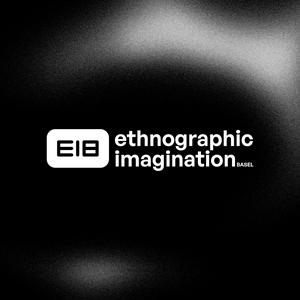
Hämta den kostnadsfria radio.se-appen
- Bokmärk stationer och podcasts
- Strömma via Wi-Fi eller Bluetooth
- Stödjer Carplay & Android Auto
- Många andra appfunktioner
Hämta den kostnadsfria radio.se-appen
- Bokmärk stationer och podcasts
- Strömma via Wi-Fi eller Bluetooth
- Stödjer Carplay & Android Auto
- Många andra appfunktioner


Ethnographic Imagination Basel
Skanna koden,
ladda ner appen,
börja lyssna.
ladda ner appen,
börja lyssna.


